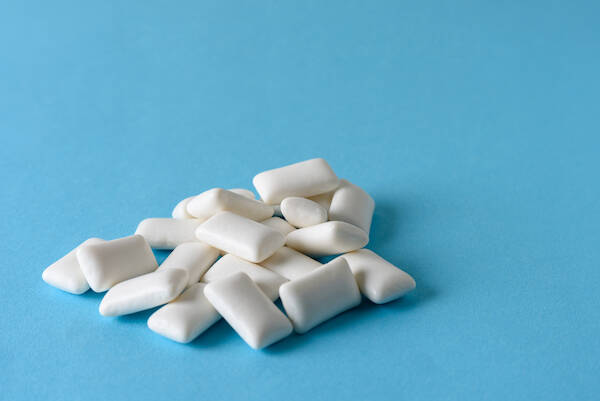
You may be familiar with the advertising phrase “whiter and brighter.” It’s used to help sell a variety of products, ranging from laundry detergent to toothpaste and teeth whiteners. An ingredient used to achieve that effect is called titanium dioxide, and it’s also used in some foods, such as cottage cheese and cake frostings to make them appear whiter and more visually appealing. What is not so appealing about titanium dioxide, however, are the findings of recent research linking its use with colon cancer.
What is titanium dioxide?
Titanium dioxide is a powder that is used as a white pigment that has the ability to enhance and brighten white opacity because it scatters light well. Food and personal care and cosmetic manufacturers like to use it to boost and better define colors in their products.
Read about preservatives and food additives
Food-grade titanium dioxide (E171) is a common food additive that contains nanoparticles. You can’t see nanoparticles without a microscope, as they are 1 to 100 nanometers in size. By comparison, an average piece of paper is 100,000 nanometers thick. The extremely small size of nanoparticles in titanium dioxide makes it easy for them to damage cells.
When titanium dioxide is used as a pigment in sunscreen, paints, makeup, and plastics, it is called titanium white, pigment white 6, or CI77891. Food-grade titanium dioxide is used in baked goods, frosting, sandwich spreads, toothpaste, white sauces, coffee creamer, chocolate, milk, candy, some dairy products, salad dressing, and chewing gum. It is also used as an anti-caking agent in instant food mixes and beverages and as an excipient in vitamin supplements and medications.
Titanium dioxide and colon cancer: Research
In a recent study appearing in Toxicology, a group of scientists set out to determine how human colon cancer cells respond to exposure to titanium dioxide (E171). Earlier research in mice had indicated that introducing titanium dioxide to colon cancer in mouse models exacerbates the formation of colon tumors. Now scientists wanted to not only use a human model but also see if the toxic effects continued after exposure to the titanium dioxide was removed.
They discovered that the toxic effects of titanium dioxide continued even after the human cells were no longer exposed to the additive. The cells showed DNA damage and other damaging changes, even 48 hours after the E171 was removed from the colon cells.
Exposure to titanium dioxide may come from another source as well. Because it contains nanoparticles and large amounts of these particles are found in the water supply, some research shows the toxin is accumulating in seafood as well.
Titanium dioxide: banned or not?
France banned the use of E171 in food in 2020, and the European Food Safety Authority named the food additive unsafe in 2021. The use of titanium dioxide continues in the United States, however, as well as in Canada and the United Kingdom. In 2022, the Titanium Dioxide Manufacturers Association announced that Health Canada and the United Kingdom’s Food Standard Agency had concluded that titanium dioxide didn’t pose any health concerns when used as a food additive.
In the United States, a class action lawsuit was launched against Mars Corporation in July 2022 because of its use of titanium dioxide in Skittles. The company pledged to eliminate the additive within five years in 2016 but failed to do so. The individual suing Mars Corporation, Jenile Thames, noted that some other candy makers have removed the toxin from their products. As of October 2022, titanium dioxide is still found in Skittles, and the Food and Drug Administration maintains that the additive is safe for human consumption. Thames dismissed the case in November 2022 without prejudice, which means he can sue again.
Read about 7 scary food additives to avoid
Bottom line
Recent research indicates that titanium dioxide in foods and personal care products may pose a risk of colon cancer in humans. Titanium dioxide is another food additive, among many others, that consumers need to be aware of and avoid when possible. We propose it is added to the list of Scary 7.




